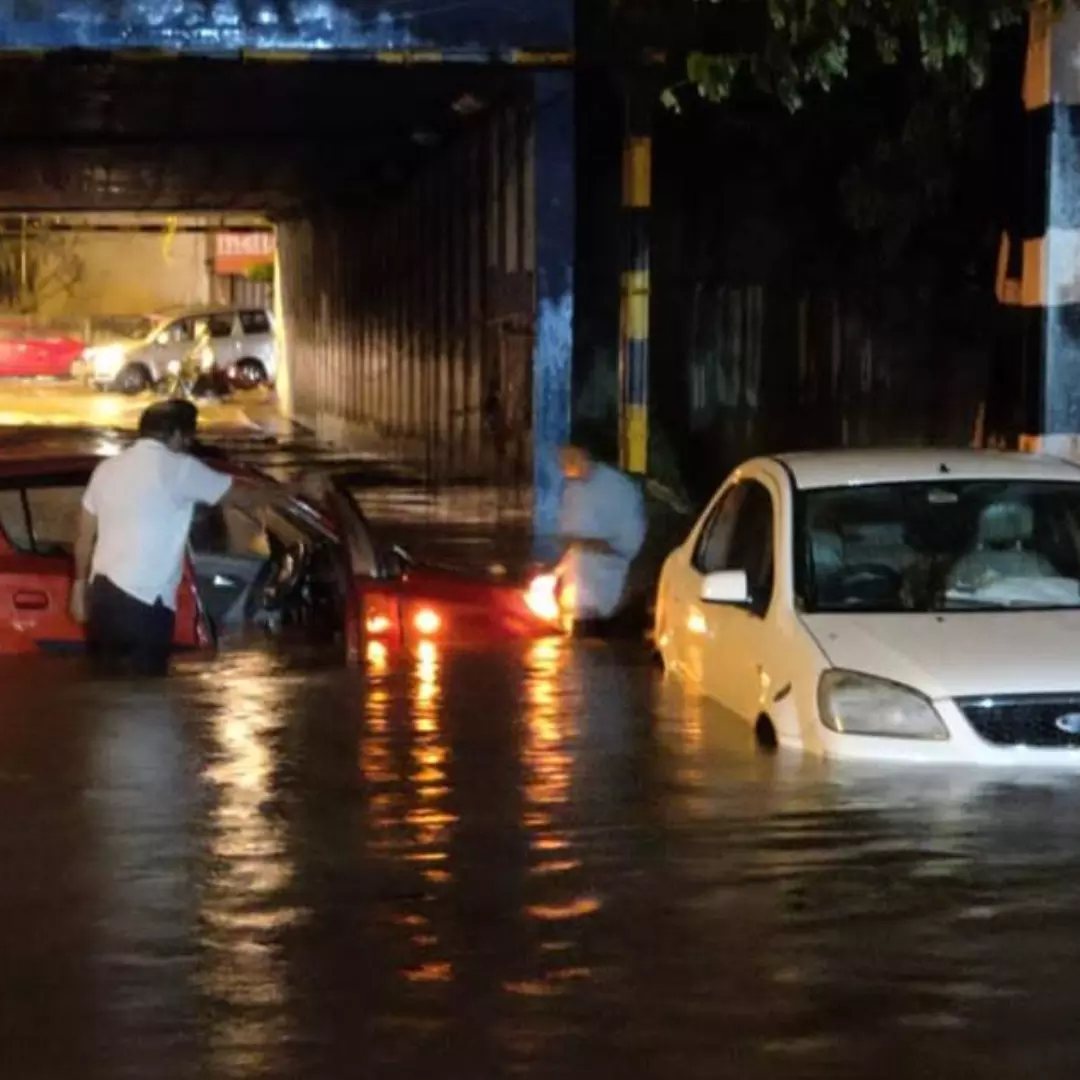Bengaluru has had many flooding disasters over the last year, prompting property consulting firm Knight Frank to release research based on available data to identify cracks in the city’s stormwater drainage system.
The two-month research, ‘Bengaluru Urban Flood,’ was launched on Wednesday at their headquarters. It is their first study on the subject in India, and they feel that a drainage master plan, which might take up to a year and a half to prepare, is one of the most promising solutions.
Researchers projected that the city was required to construct around 658 k of primary and secondary drains, in addition to renewing the existing ones, based on figures from IISc and other sources. The city currently has 842 km of primary and secondary drain length, and the deficiency was estimated using several metrics such as Total Road length, etc. Knight Frank predicts that the capital investment needed will be Rs 2,800 crore.
“As per our analysis, at an estimated cost of 2.2 crore/km, the capital expenditure to build new primary drains is approximately Rs 1,448 crore in addition to Rs 556 crore required to rehabilitate existing drains. Thus, the total cost of construction of new primary drains along with rehabilitating the existing drains sums up to an estimated Rs 2,003 crore ($250 mn),” the report stated.
The study’s principal author, V Shilpashree, explains that 80% of the cost is for constructing additional demand, while the rest is for maintaining or enhancing current infrastructure.
Shantanu Mazumer, executive director of Bengaluru, Knight Frank, pointed out that the budget allocations and real estate earnings were adequate for the strategy. Bengaluru has to look at how other cities in India and worldwide have developed models.
“For long-term sustenance, there needs to be a greater emphasis on the cohesive development of real estate and strengthening of supporting infrastructure without causing further damage to the ecosystem of Bengaluru. To avoid recurring instances of urban flooding, the governing bodies need to rejuvenate and remodel the city’s stormwater infrastructure,” according to the research.
New Urban Construction Model
“Sponge City” is a new urban construction model for flood management in China that aims to enhance ecological infrastructure and drainage systems. According to the research, such a concept addresses urban surface-water floods and related urban water management challenges, such as purification of urban run-off, attenuation of peak run-off, and water conservation.
This concept incorporates green spaces and ‘blue’ systems like wetlands with traditional ‘grey’ infrastructure like concrete barriers, helping to achieve the 2030 UN Sustainable Development Goal (SDG) of “making cities and human settlements inclusive, safe, resilient, and sustainable.”
The research also stated that governing bodies can employ mechanisms such as value capture finance (VCF) to capture a portion of the increase in land value and real estate development for funding infrastructure construction and maintenance costs, according to a report in The Indian Express
According to Rajeev Vijay, Executive Director, Government and Infrastructure Advisory at Knight Frank India, the team recommends that the government develop a comprehensive stormwater drainage plan similar to other cities. They must investigate the ground situation, geotag concerns such as encroachments, and construct new models.
Shishir Baijal, chairman and managing director of Knight Frank India, said, “This report is a strategic document that outlines the current condition of the stormwater drainage system and proposes improvements and expansion to meet the growing needs of the city. The master plan should be developed with the involvement of experts, urban planners, environmentalists, and stakeholders to ensure its effectiveness and feasibility.”
Also Read: Maharashtra: Over 1 Crore Farmers To Get Rs 12,000 Annually
https://thelogicalindian.com/h-upload/2023/06/02/500x300_231943-web-67.webp
Trending
2023-06-02 09:24:00.0
Report Calls For 600 Km Of Stormwater Drains To Prevent Urban Floodings In Bengaluru











